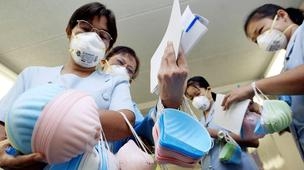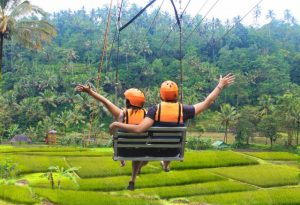The rise of medical tourism in Bangkok

By Caroline Eden
While most travellers aim to stay out of the hospital while on vacation, a growing number of medical tourists – people who combine treatment with travel — are crossing international borders for the sole purpose of attaining medical services, which can range from a hip replacement to a tummy tuck.
Related video: Going local — Bangkok, Thailand
Widespread air travel, mounting healthcare costs in developed countries, long waiting lists and an ageing world population have all contributed to a global explosion of medical tourism in the past decade — and Asia is leagues ahead in terms of world market share.
More than 89% of medical tourists travelled to Thailand, India or Singapore in 2010, with Bangkok and Singapore leading the pack. But the cost of hotel rooms and treatment are both far more expensive in Singapore than in the Thai capital, making Bangkok the most popular place for medical tourism in the world. Even after the devastating floods of 2011, 19 million tourists visited Thailand in 2011, a 20% jump from 2010, with an estimated 500,000 travelling specifically for medical treatment, whereas of the 10.2 million tourists that visit Singapore each year, only 200,000 go to receive medical care.
The trend is lucrative too. Medical tourism in Thailand is growing at a yearly rate of 16%, while in financial terms the foreign medical services sector is expected to make a whopping 100 billion baht by 2015. Currently, medical tourism makes up 0.4% of the GDP, while tourism overall accounts for 6% to 7%, the third most important economic driver in Thailand. To compare, the Thai automotive industry accounted for 12% of GDP last year, while manufacturing led the way accounting for 36% of GDP in 2011.
Given Thailand’s reputation for graceful and attentive service, it is not hard to see why Bangkok has quickly become the medical tourism hub of Asia. Suvarnabhumi Airport is serviced by airlines from around the world, reasonably-priced hotel rooms abound, there is reliable public transportation and 30-day visas for many nationalities are easy to get upon arrival, all of which help to make a stay — in a hotel or hospital — easy. The Tourism Authority of Thailand (TAT), which began promoting medical tourism in 2004, has a detailed medical tourism website that highlights many of the most popular treatments available, including dental work, dermatology and cosmetic surgery, as well as listing reputed hospitals, making it easy for potential visitors to decide on a procedure. Forward thinking in many of its approaches, TAT has also recently partnered with state-owned Krungthai Bank, the national bank of Thailand, to offer tourists a debit card called the Miracle Thailand Card, which offers some medical and life insurance coverage in case of an accident.
Western accreditation is also a vital component for confidence in undergoing foreign medical treatments and Bangkok’s Bumrungrad and Samitivej hospitals were among Southeast Asia’s first recipients of the United States’ prestigious Joint Commission International (JCI) certification, which is seen as the gold standard for healthcare service providers around the world. Now Bangkok has no less than eight JCI-accredited hospitals for medical tourists to book with. Singapore, on the other hand, has 13 JCI-accredited hospitals.
Hospitals in Thailand are also very popular with those who travel from neighbouring Asian countries to seek treatment. Bangkok Hospital, which specifically caters to medical tourists, has an entire Japanese wing, while Phyathai Hospitals Group has translators for 22 languages, including Swedish, Khmer and Flemish, as well as a team of English-speaking staff. It is also well known that when Prime Minister Girija Prasad Koirala of Nepal needed medical care in 2006, he chose to travel to Bangkok ‘s Bumrungrad Hospital for treatment.
“The hospitals in Bangkok are some of the highest quality in the world, meeting or exceeding US standards,” said Steven Lash, CEO of Satori World Medical, a US-based medical travel company that sends patients to Bangkok as well as to seven other countries, including Turkey and Mexico. “All of the patients we have sent to these hospitals have given us excellent feedback on their procedures and their experiences at the facilities.”
Committing to airfares, accommodation, out of network or uninsured medical bills and time off work is a big decision for travellers to make. Yet it seems for many, the benefits and savings outweigh the risks. For example, a hip replacement at Bangkok’s Bumrungrad hospital costs 575,834 baht on average, about half the price of the same operation in the US, making it a worthwhile consideration for many who are open-minded enough to take the plung.Source-BBC















